23 facts about the ISS
- Published
- comments
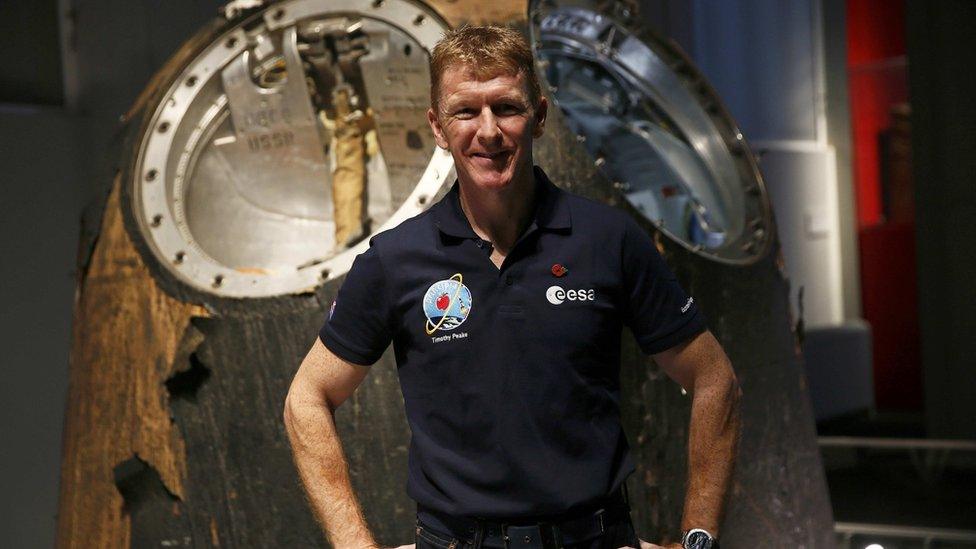
Major Tim Peake has lived and worked aboard the ISS
Today officially marks 20 years since the International Space Station - the ISS - first started orbiting the Earth.
It was launched back in 1998 and astronauts have been living on board ever since.
It's an important place to carry out tests and research that will help future space missions to places like the Moon and Mars.
To mark this momentous scientific anniversary, we're taking a look at some of the station's key statistics!
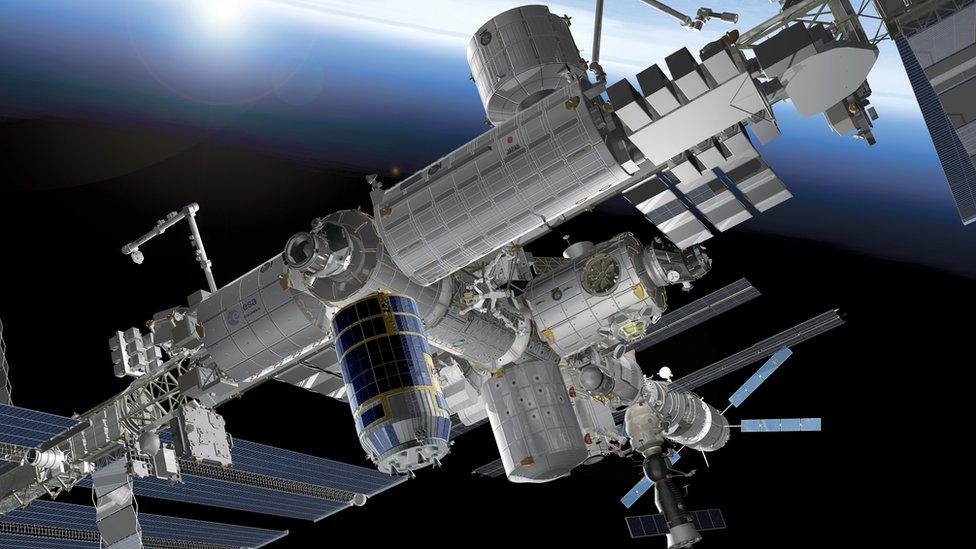
It flies around the world every 90 minutes, travelling at 5 miles per second
In the space of just 24 hours, the space station makes 16 orbits of Earth, travelling through 16 sunrises and sunsets
It's 357ft long from end to end - that's about the same as a football pitch
After the moon, the ISS is the second brightest object in our night sky - you don't even need a telescope to see it zoom over your house
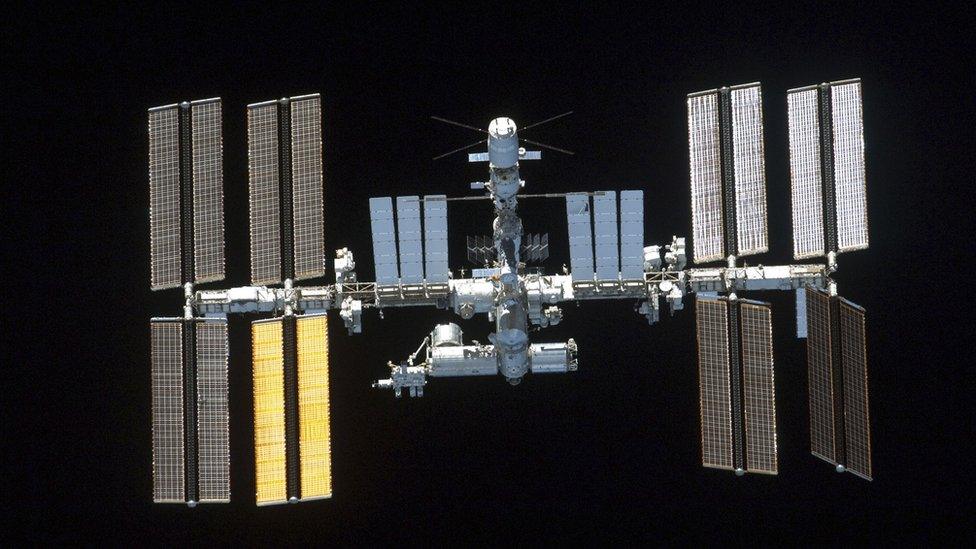
There are two bathrooms on board! There's also one gym, six sleeping quarters and a 360 degree bay window
Six spaceships can dock to the station at any one time
Astronauts have to work out for two hours a day while on board to help keep their muscles in shape while in space
More than 50 computers control all the systems on the station
The electrics on the ISS are all connected with eight miles of cabling
230 individuals from 18 countries have visited the International Space Station
205 spacewalks have been carried out since December 1998
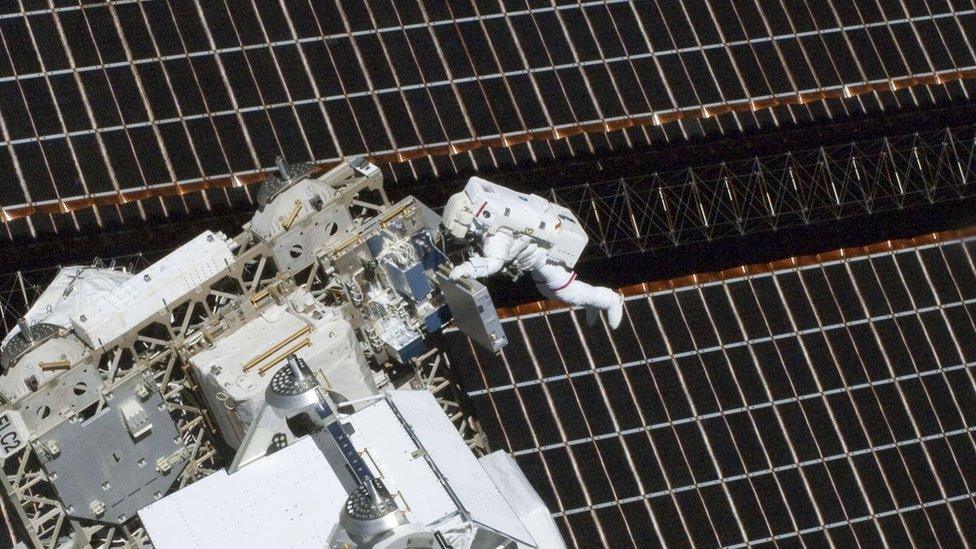
An astronaut making a spacewalk around the ISS
The ISS weighs about 420,000kg - that's about the same as 320 cars
It flies through space about 250 miles from the Earth - a craft can get there from Earth in about six hours
The astronaut Peggy Whitson set the record for spending the most total length of time living and working in space at 665 days on 2 September 2017
- Published23 September 2015
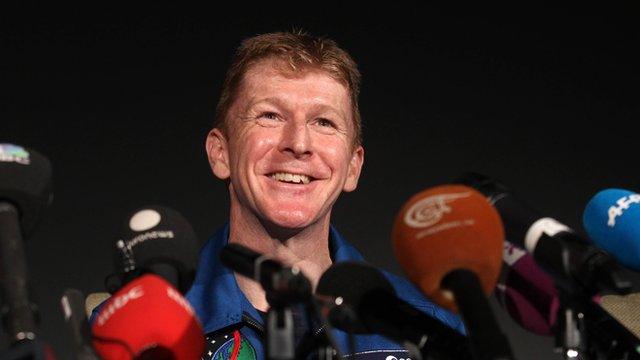
- Published16 July 2015
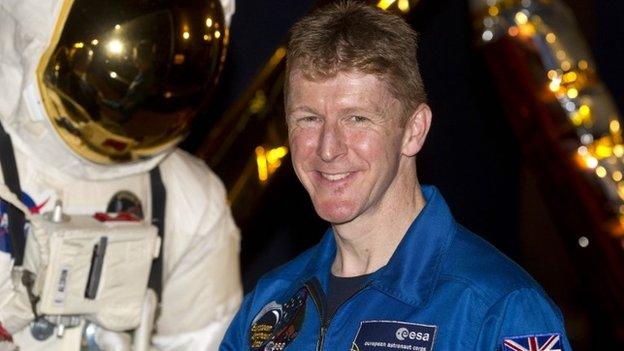
- Published10 December 2014
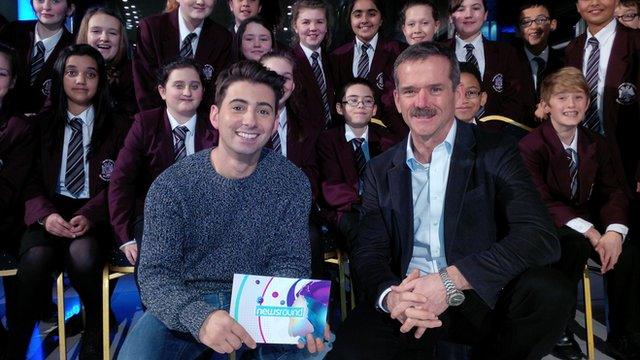
- Published18 July 2014
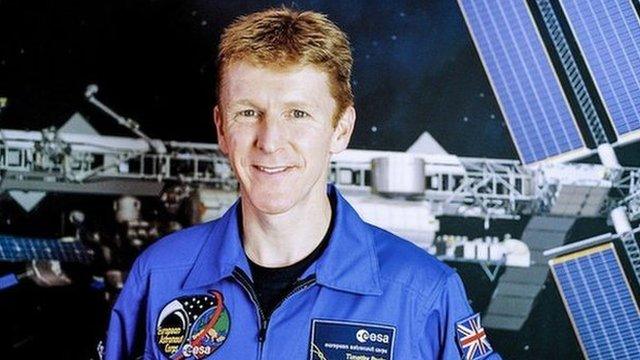
- Published24 January 2014
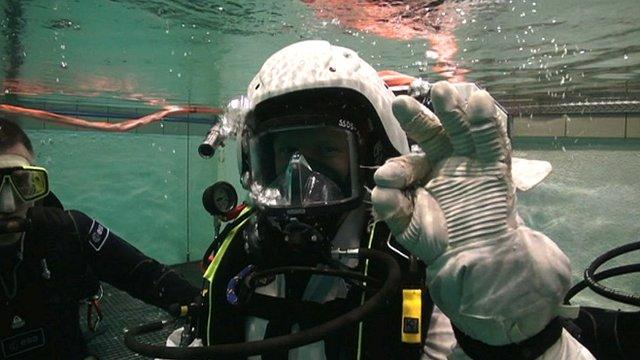
- Published2 May 2014
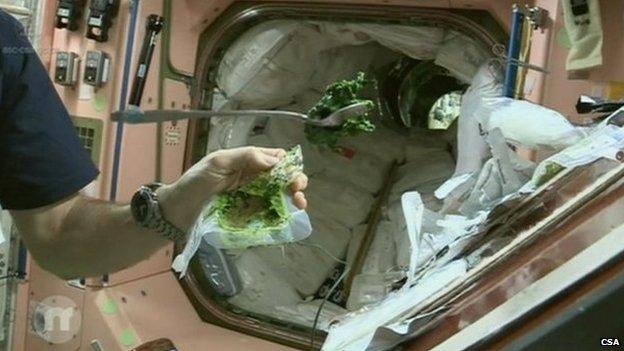
- Published20 May 2013
- Published29 November 2014
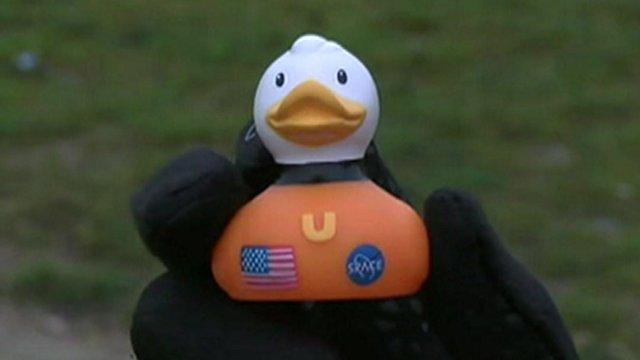
- Published15 March 2014
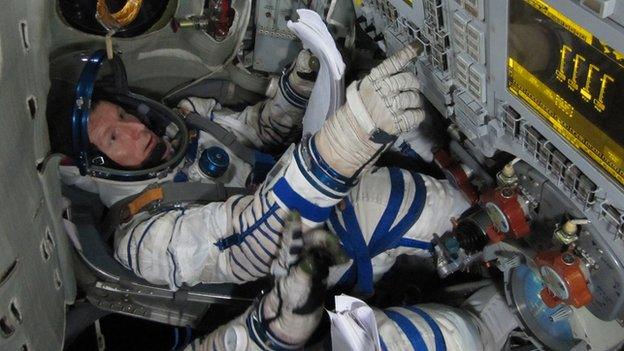
- Published28 October 2015
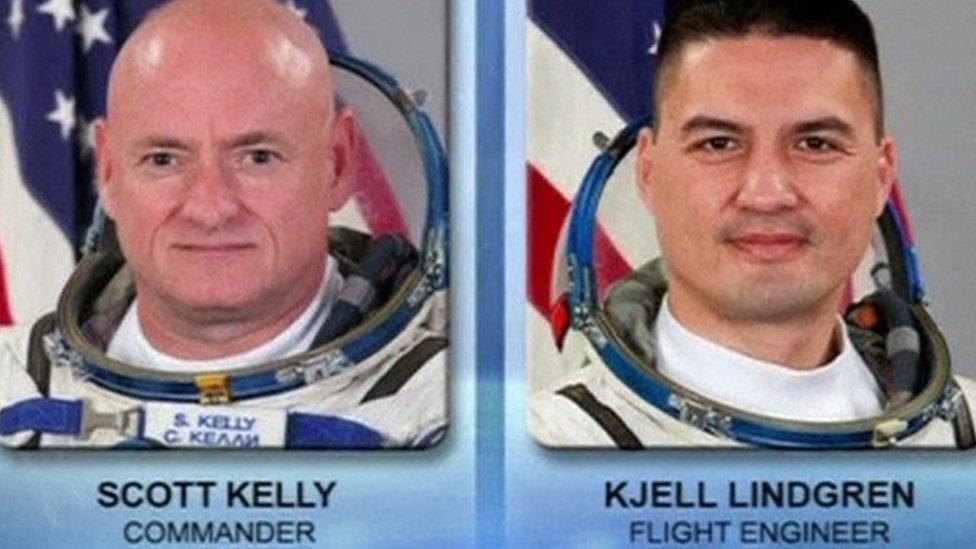
- Published2 September 2015
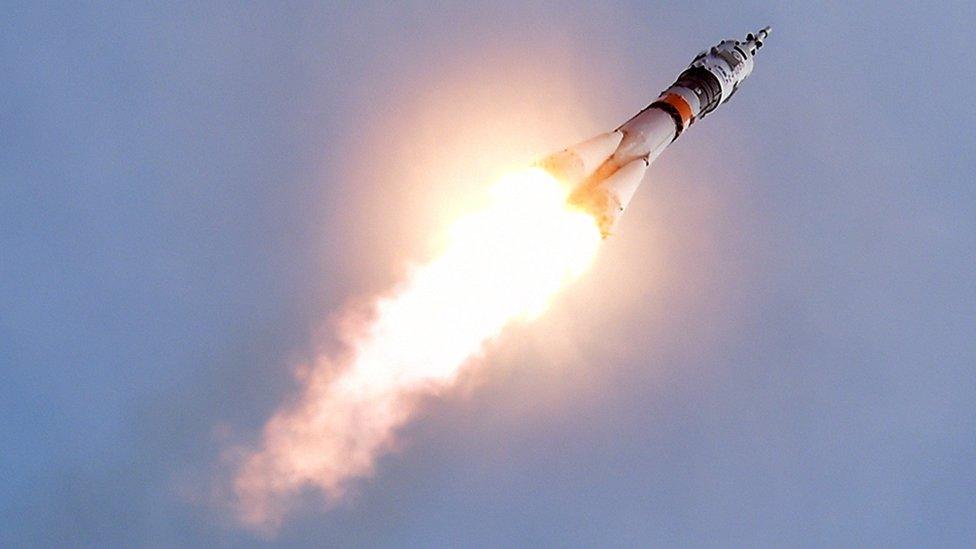
- Published25 November 2014
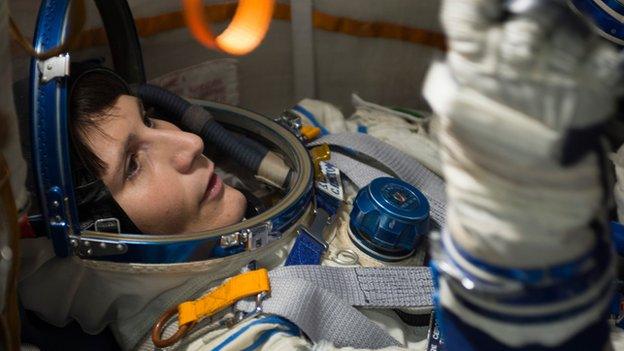
- Published4 August 2013
